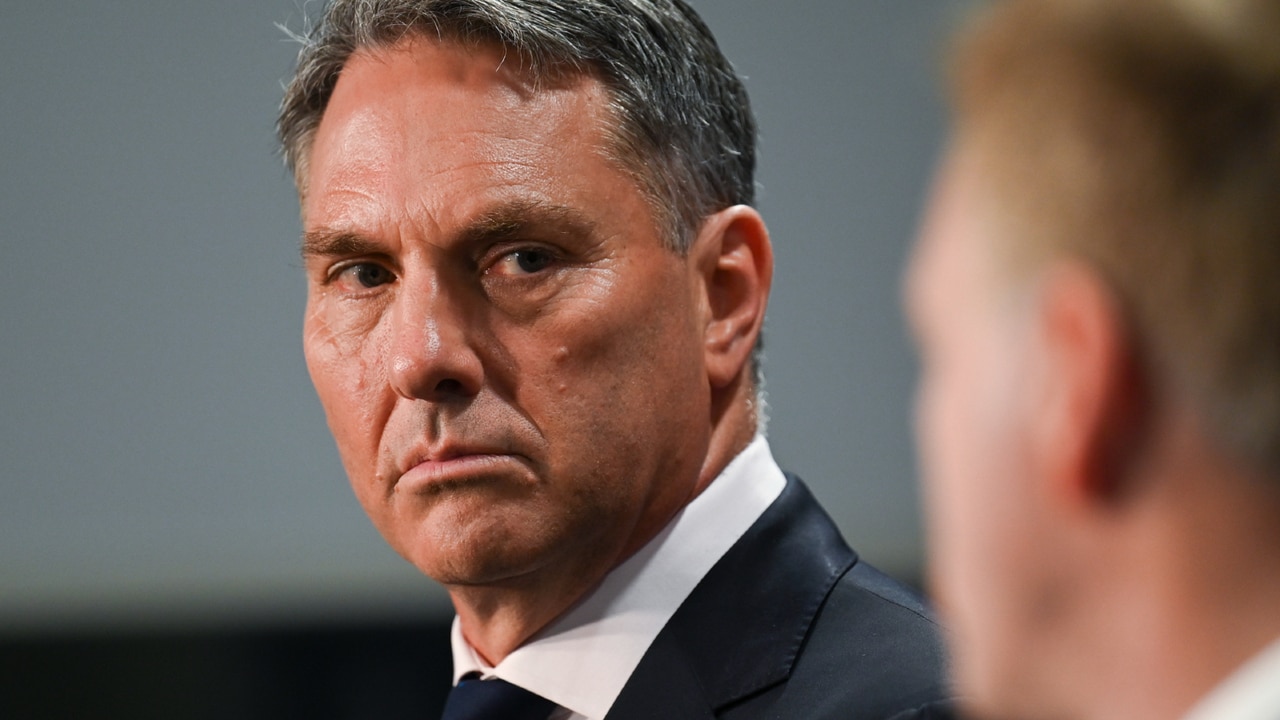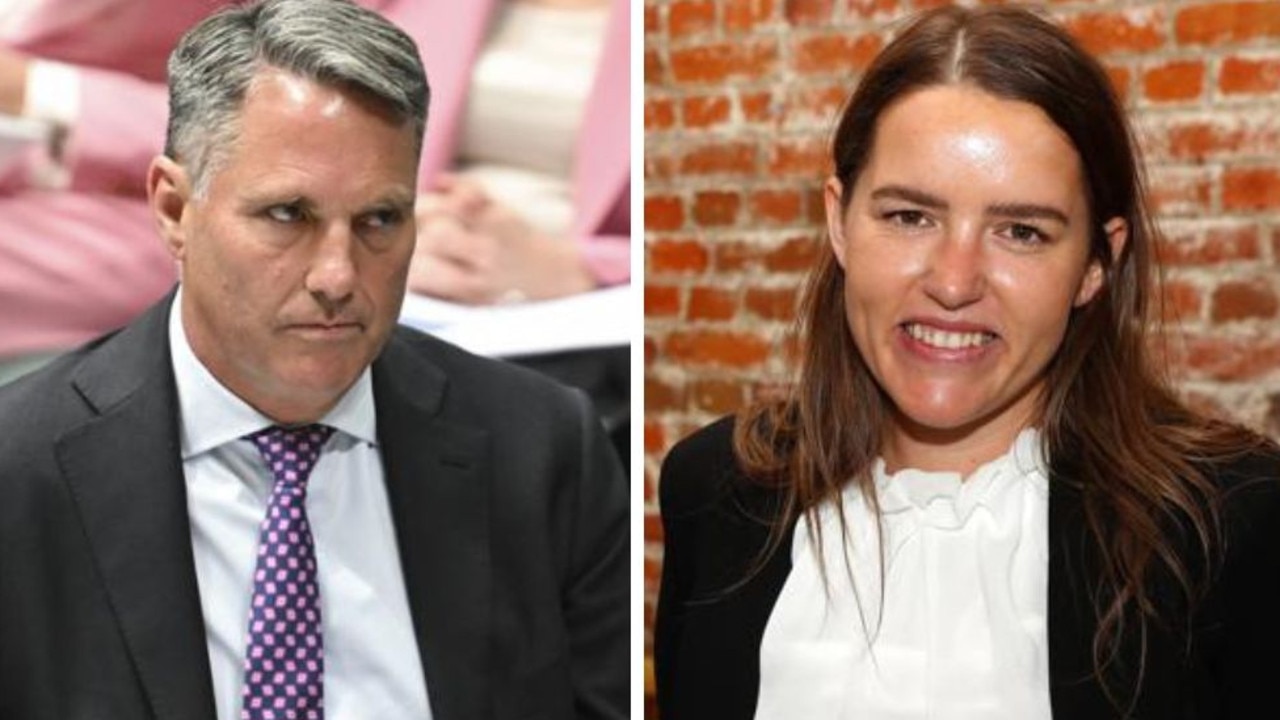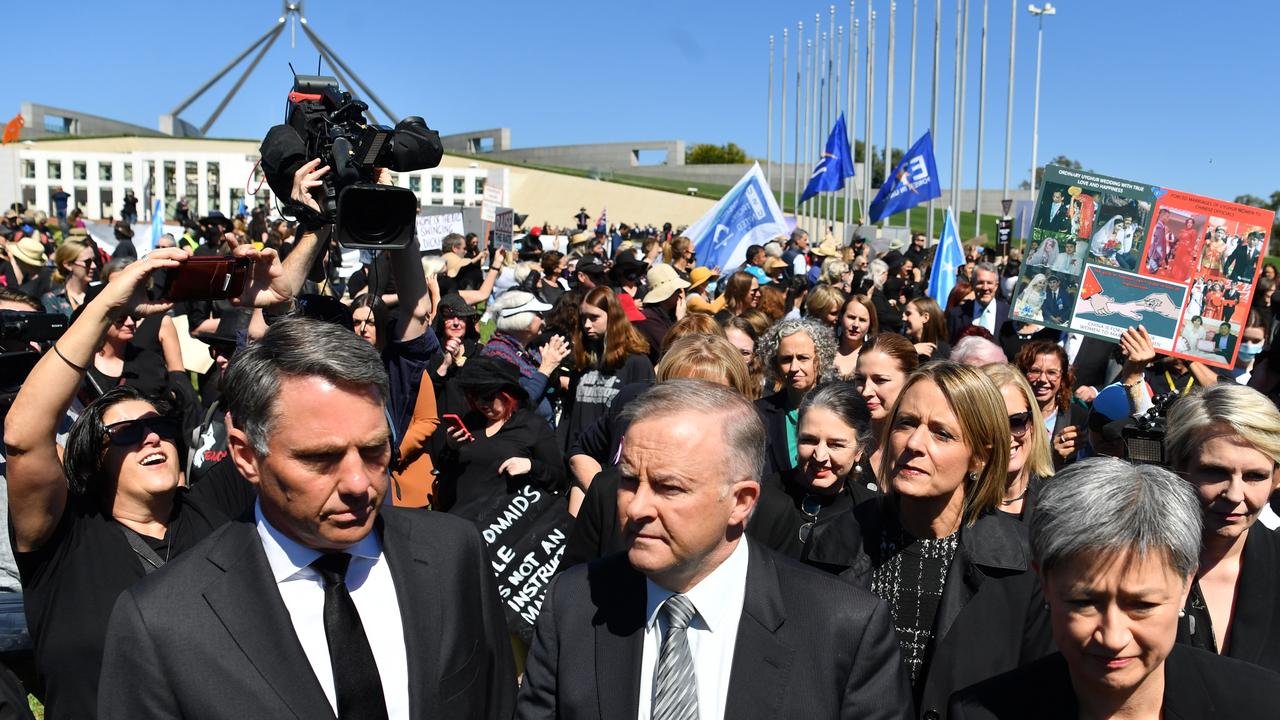Richard Marles’s prominent role in Australian politics makes him a compelling figure for analysis. This profile delves into his career trajectory within the Australian Labor Party, examining his key policy positions on crucial issues such as Australia’s relationship with China, climate change, and national security. We will explore his leadership style, media portrayal, and the impact of global events on his political strategies, providing a comprehensive overview of his influence on the Australian political landscape.
From his early career within the Labor Party to his current high-profile positions, we will trace Marles’s ascent, highlighting significant policy contributions, legislative achievements, and his evolving stances on major national and international issues. The analysis will incorporate insights from media coverage, assessing public perception and exploring the potential for future political impact.
Marles’ Stance on Key Policy Issues: Richard Marles
Richard Marles, as Deputy Prime Minister and Minister for Defence in the Australian government, holds significant influence over the shaping of Australia’s domestic and foreign policies. His positions on key issues reflect a blend of pragmatism, strategic foresight, and a commitment to Australia’s national interests. Understanding these stances provides valuable insight into the current direction of Australian policy.
Australia’s Relationship with China
Marles’ approach to Australia’s relationship with China is characterized by a cautious realism. He acknowledges the economic importance of China while simultaneously emphasizing the need for a robust and principled approach to managing the relationship. This involves advocating for open communication channels, but also a firm stance on issues such as human rights and regional security. He has consistently stressed the importance of diversifying Australia’s economic partnerships to reduce over-reliance on any single trading partner, including China.
His strategy seeks to balance economic engagement with a clear articulation of Australia’s values and security concerns. This nuanced approach aims to navigate the complexities of the relationship, mitigating risks while pursuing opportunities for cooperation where possible.
Deputy Prime Minister Richard Marles’s recent focus on economic stability is particularly relevant given the current business climate. The recent announcement of mosaic brands voluntary administration highlights the challenges facing Australian businesses, underscoring the need for policies that support economic resilience. Understanding these challenges will likely inform Mr. Marles’s future economic strategies.
Climate Change and Environmental Policy
Marles has been a vocal advocate for ambitious climate action. He supports Australia’s commitment to reducing greenhouse gas emissions and transitioning to a cleaner energy future. His policy positions align with the government’s targets for emissions reduction, including investing in renewable energy technologies and supporting the development of a robust carbon market. He recognizes the economic opportunities presented by the transition to a low-carbon economy, emphasizing the potential for job creation and technological innovation in this sector.
Furthermore, he has expressed strong support for policies aimed at protecting Australia’s unique biodiversity and natural resources.
National Security and Defence Matters
Marles’ approach to national security and defence is rooted in a strong commitment to maintaining Australia’s sovereignty and regional stability. He emphasizes the importance of strengthening alliances, particularly with the United States and other regional partners, to counter emerging security challenges. This includes bolstering Australia’s defence capabilities through investments in advanced technologies and personnel training. His focus on enhancing regional security cooperation highlights the need for a multilateral approach to addressing shared threats, such as terrorism and cyber warfare.
A key element of his strategy is to maintain a strong and credible defence force capable of protecting Australia’s interests in a complex and evolving strategic environment.
Economic Policies and Proposals for the Australian Economy
Marles’ economic policies focus on fostering sustainable and inclusive growth. He advocates for policies that support Australian businesses, create jobs, and improve living standards for all Australians. This includes investing in infrastructure, skills development, and innovation. He also emphasizes the importance of responsible fiscal management and ensuring the long-term sustainability of the Australian economy. Specific policy proposals have included investments in renewable energy infrastructure to create jobs and stimulate economic growth, alongside initiatives to support small and medium-sized enterprises (SMEs) and strengthen the manufacturing sector.
These policies aim to balance economic growth with social equity and environmental sustainability.
Public Perception and Media Coverage
Richard Marles’ public image is a complex tapestry woven from diverse media portrayals and evolving public sentiment. Understanding this image is crucial for assessing his political standing and effectiveness. Analysis reveals a range of perspectives, from strong support to significant criticism, often depending on the specific issue and the news outlet reporting it.
Media Portrayals of Richard Marles
Media coverage of Richard Marles has been varied, reflecting the multifaceted nature of his political career and the issues he addresses. Positive portrayals often highlight his experience, his measured approach to policy, and his efforts to build consensus. For instance, articles focusing on his work in strengthening Australia’s alliances have frequently presented him in a favourable light. Conversely, negative portrayals have sometimes criticized his handling of specific policy challenges or questioned his communication style.
Criticism has occasionally centered on perceived inconsistencies in his statements or a perceived lack of decisive action on particular issues. The overall tone of media coverage fluctuates depending on the current political climate and the specific events being reported.
News Outlet Coverage Comparison
The following table compares the coverage of Richard Marles across different news outlets, illustrating the diversity of perspectives. Note that this is a limited sample and does not represent the entirety of media coverage.
| News Outlet | Date | Headline | Summary of Article |
|---|---|---|---|
| The Australian | October 26, 2023 | Marles defends AUKUS submarine deal | Article presents a balanced view, highlighting both the benefits and challenges associated with the AUKUS submarine program, quoting supporters and critics of the plan. |
| ABC News | November 15, 2023 | Marles announces new defense strategy | Positive coverage emphasizing the strategic importance of the new defense strategy and its potential benefits for national security. |
| The Guardian | December 2, 2023 | Debate heats up over Marles’ climate policy | Article presents differing viewpoints on Marles’ climate policy, highlighting both supporters and opponents of his approach. |
| Sky News Australia | December 10, 2023 | Questions raised over Marles’ handling of [Specific Policy Issue] | Critical article questioning the effectiveness of Marles’ approach to a specific policy area, citing concerns raised by opposition figures. |
Overall Public Perception of Richard Marles
Based on available polling data and social media sentiment analysis (Note: Specific data sources would need to be cited here for a complete analysis), public perception of Richard Marles appears to be somewhat polarized. While he enjoys significant support within his own party and among certain demographics, a segment of the population expresses reservations about his leadership style or specific policy positions.
The overall public perception is dynamic and shifts based on current events and the prevailing political narrative.
Richard Marles, Australia’s Deputy Prime Minister, is known for his insightful political commentary. For a different kind of puzzle, you might enjoy tackling the challenges presented by the daily nyt crossword clues , which often require similar lateral thinking skills. Returning to Marles, his strategic approach to policy mirrors the meticulous planning needed to solve a complex crossword.
Hypothetical Social Media Campaign, Richard marles
A social media campaign aimed at improving or maintaining Richard Marles’ public image could focus on highlighting his accomplishments, emphasizing his relatable personality, and engaging in direct dialogue with the public. This could involve short video clips showcasing his work in the community, interactive Q&A sessions on social media platforms, and targeted advertising campaigns emphasizing his policy positions on key issues.
The campaign should actively address criticisms and engage in constructive dialogue with those who hold opposing views. A strong visual identity and consistent messaging across all platforms would be crucial for maximizing impact.
Visual Representation of Marles’ Career
This section details two visual representations illustrating Richard Marles’ career trajectory and key policy positions. The aim is to provide a clear and concise overview of his professional life and political stances, using visual aids for improved understanding.
Visual Representation of Marles’ Career Trajectory
This visualization would take the form of a timeline, extending horizontally across the page. The background color would be a muted grey, providing a neutral backdrop for the vibrant elements. The timeline itself would be a dark blue line, representing the steady progression of Marles’ career. Key milestones would be marked with circular icons, each a different shade of blue, growing progressively darker to reflect seniority and significance.
For example, his election to Parliament could be a light blue circle, while his appointment as Deputy Prime Minister would be a much darker blue. Each circle would contain a brief, one-line description of the milestone (e.g., “Elected to Parliament,” “Appointed Minister for Defence”). Dates would be clearly indicated along the timeline. The overall effect would be a clean, professional, and easily understandable visual summary of his career path.
Visual Representation of Marles’ Key Policy Positions
This visualization would employ a radial chart, emanating from a central image of Richard Marles. Each major policy area (e.g., Defence, Climate Change, Economic Policy) would be represented by a distinct section of the chart, using different colors and associated icons. For example, Defence might be represented by a shield icon and a dark blue segment, Climate Change by a green leaf icon and a light green segment, and Economic Policy by a graph icon and a gold segment.
The size of each segment could be proportional to the relative emphasis Marles has placed on each policy area throughout his career, offering a visual representation of his priorities. Within each segment, key policy positions could be briefly listed, using concise bullet points. The chart would be designed to be easily interpretable, using a clear legend and a simple color scheme to avoid visual clutter.
In conclusion, Richard Marles’s political career presents a multifaceted picture of a prominent figure in Australian politics. His policy positions, leadership style, and responses to global events offer valuable insights into the complexities of modern Australian governance. While public perception remains dynamic, his significant contributions and continued influence within the Australian Labor Party solidify his importance in shaping the nation’s future.
FAQ Guide
What is Richard Marles’s educational background?
Information on his educational background would need to be sourced from biographical information not included in the provided Artikel.
What are some criticisms leveled against Richard Marles?
A comprehensive list of criticisms would require a more in-depth analysis of media coverage and political commentary beyond the scope of the provided Artikel.
What is Richard Marles’s family background?
Details regarding his family background are not provided in the Artikel and would require additional research.
What are Richard Marles’s long-term political ambitions?
His future political aspirations are speculative and not explicitly stated in the provided information.



